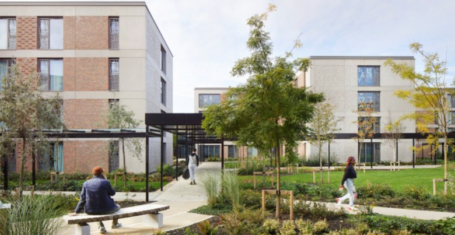
‘Violent’ eviction of student protesters shows where the University of Manchester’s priorities lie
When will the University of Manchester learn to respect its students?
The videos of Manchester students being dragged out of the Simon building at 5am yesterday morning by bailiffs were rightly met by national outrage, but to me they come as no surprise. The National Union of Students called it a “violent” reaction to “students who have stood up for what’s right”.

In my first year the University of Manchester promised me in-person teaching, I moved into overpriced, pest-infested halls, which were soon the Covid hotspot of the UK and the only time I saw the inside of a lecture theatre that year was when I was occupying one.
UoM Rent Strike won almost £11 million from the university after students tore down fences around Fallowfield campus and occupied Owen’s Park tower for two weeks. It was the biggest rent strike win in UK history, inspiring 56 other universities to start their own rent strikes the next term, and teaching 18-year-old-me the power of collective action.
Living conditions have only got worse, and student anger has escalated
It’s now my third year, and Manchester halls have gone up in price year on year at a rate higher than inflation. Nationally, one in four students are skipping meals to get through the cost of living crisis, and more than 10 per cent are using food banks. I work several part time jobs just to get by, which affects the time I have to study.

In the last two months, students have missed 11 days of teaching because university bosses have failed to meet the demands of the UCU for decent pay, working conditions and job security.
Since last year, the University of Manchester has doubled its annual surplus to £120 million. Senior management continue to earn salaries that make being prime minister look badly paid.
The issues that have reached boiling point are symptoms of a larger problem – a system which puts profits first
The lesson the university has taken from the 2020 strikes seems to be that giving students a crumb will make them demand the earth. It pre-empted student discontent at the beginning of the year, announcing a cost of living package that it boasted was “sector-leading”. UoM Rent Strike 2023 hit back this money is a fraction of the amount they have raised student halls by in the last year.
We don’t know exactly how much suppressing this round of protests has cost them, but it’s not unreasonable to estimate it’s in the tens of thousands for security overtime, lawyers and bailiffs. Disciplinary action against 11 students alleged to be part of the group which barricaded themselves inside the senior management building for a week is still ongoing.
This year’s strikes have more numbers than ever. A Freedom of Information request by UoM Rent Strike showed 943 students hadn’t paid their rent a month after the January instalment was due. The numbers of students actively organising have more than tripled since 2020, aided by the group’s use of occupations as an open-invite community space. But UoM effectively denied the existence of a strike and senior staff have run away from students trying to present them with a letter about living conditions.

Credit: An occupier
Many of these problems are not unique to the University of Manchester: as long as universities are run like businesses the same conditions will continue to happen across the country.
If the university continues to ignore students and crack down on peaceful protest it should remember the spontaneous action of angry students in 2020, tearing down fences which cost £11,000.
Students who cannot afford their basic living costs have no option but to continue to protest in whatever ways are left to them.
The University of Manchester has been approached for comment.
Related stories recommended by this writer:
• University of Manchester uses bailiffs to evict rent strikers from the Simon building in 5am raid
• Manchester University takes students to High Court over occupation of Simon building









































